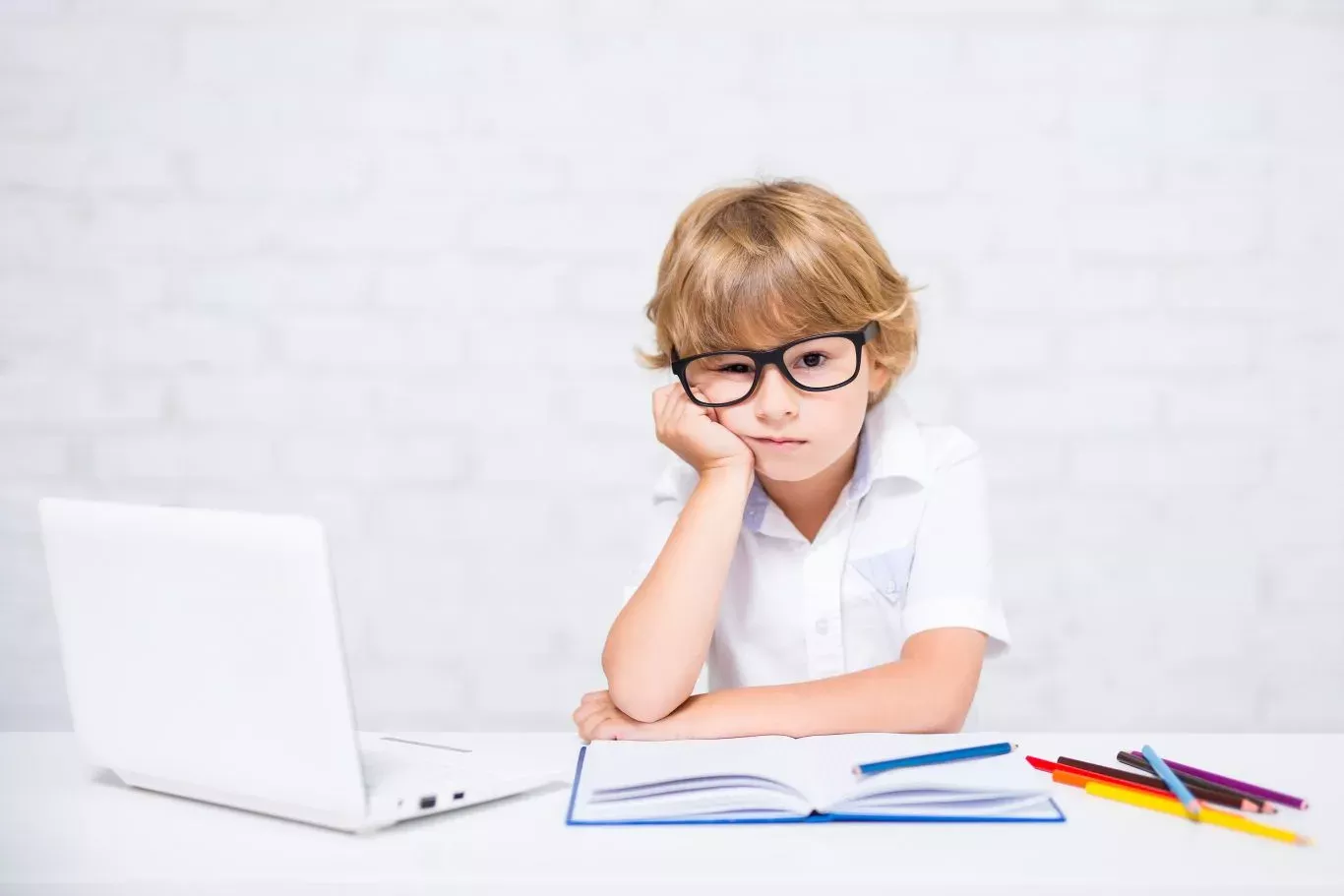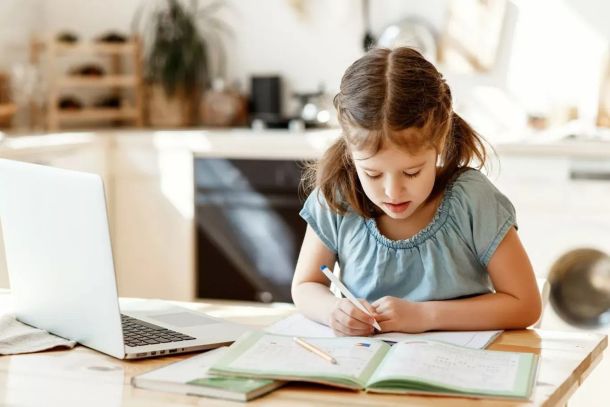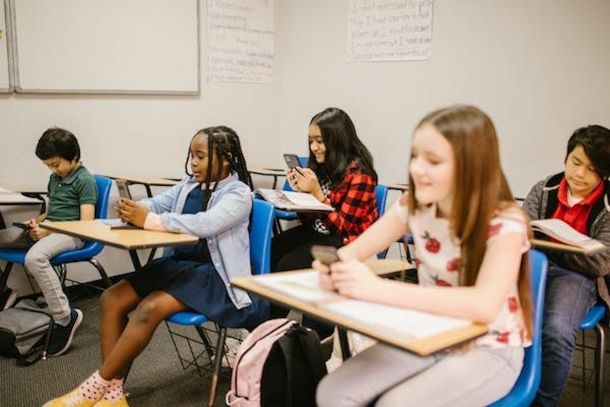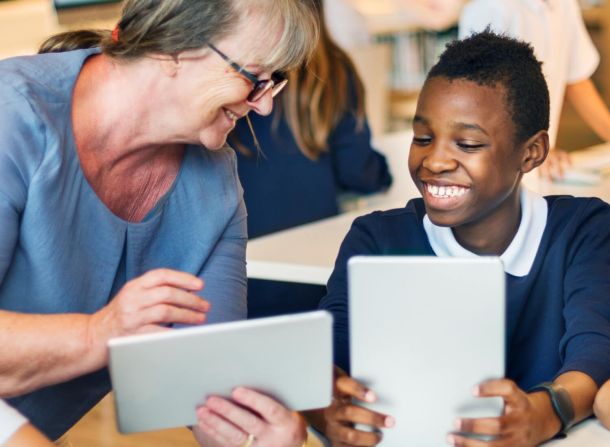The health restrictions and isolation we experienced during the two years of the pandemic, as a means of limiting the spread of Covid-19, sidelined education around the world.
They have overlooked the price that students are only now beginning to pay. The loss of subjects accumulated while schools have been closed will follow students into the labor market and both they and the countries they belong to will be affected by the consequences of these losses in the economic sector.
The material lost during the online school years will be reflected in the incomes of the next generation of employees. They may earn 3% less
A key component of economic development policies is investment in human capital. More capable people are more productive and more adaptable to technological change.
The impact of the pandemic on education will have a negative impact on the future of current generations of students. These consequences will have knock-on effects on the global economy that we will see concretely in the more distant future.
The closure of schools imposed by the pandemic is resulting in a loss of subjects that will not be recovered even if schools return to the performance standards of before this troubling period. If left unaddressed, these losses will have dramatic and long-lasting effects, both on the pupils concerned and on each state. While the specific losses are not known, studies estimate that the lifetime earnings of students in grades 1-12 will decline by about 3%.
States where schools have been closed and students have lost subjects may have a 1.5 lower GDP
For states, the reduced economic growth caused by these losses may result in a 1.5% lower GDP for the rest of this century. This damage will deepen in a scenario where schools are closed again next school year.
Save the Children's Impact on Europe's Children report Covid-19 reveals that globally, 1.6 billion pupils were out of school at the beginning of April 2020. Of the 11 European countries that were part of the study, Romania has the highest percentage of children at risk of poverty, 34.6%. The study shows that 47% of pupils used only their mobile phone to attend online classes - well above the average for other EU countries - and 27.7% had school subjects not covered while classes were suspended.
The economic losses will be felt most by pupils from disadvantaged backgrounds. The data show that pupils whose families do not have the resources to support offline learning will face greater subject losses than their peers from more advantaged backgrounds. Because they have not been able to meet the conditions necessary to access school online - laptop or computer, internet access, guidance from teachers - children from disadvantaged backgrounds have been deprived of the education they need to overcome their condition. Left unaddressed, opportunity gaps will lead to occupational gaps. For children from disadvantaged backgrounds, schools are more than a place to learn. For them, they are a safe place where they receive food, counselling and protection services and play with their friends. Teachers can be the trusted people for children to turn to when they need help.
For many students the online school "was admirable, but it was sorely lacking"
Online schooling has gradually evolved with the best practices that teachers have discovered along the way, but students have faced problems such as learning difficulties, isolation or lack of resources. In addition to their educational progress, the closure of schools has also had negative consequences for children's emotional health and their online safety.
It is the teachers who have first-hand information about how students have adapted to online schooling. From unmarked homework to disastrous exam results, teachers are witnessing disinterest and loss of subjects, the economic consequences of which will follow students throughout their lives.
What lessons have we learned from the school that took us all - teachers, students, parents - out of our comfort zone?
Online learning has completely changed the way teachers evaluate their teaching skills. It all came down, in the pandemic years, to the adaptability of teachers. They have had to change their teaching overnight, adopt innovative ways of staying connected with their students and work much harder to cover the curriculum.
Identifying positive experiences helps not only in planning for the next school year, but also in how we relate to a situation: we are already familiar with online schooling, and if we focus more on the positives, we will realize that every situation comes with potential for growth and learning.
The advantages of technology in teaching are unequivocal. But in order to achieve the benefits, teaching with digital tools needs to meet certain conditions related to infrastructure - devices and good internet connection, but also to mindset - a way of thinking that encourages innovation, the ability to change and the advantages of the century we live in.
Increasing teachers' digital skills and personalised teaching can narrow learning gaps
Now is the time to show that we have truly learned the lessons of the pandemic.
The only way the economic downturns can be mitigated is an accelerated but necessary evolution of schools. Research in this area suggests that adapting teachers' digital capabilities to new teaching requirements could boost schools' performance. In addition, because the disruption schools have experienced will deepen the gaps in pupils' knowledge levels, the shift to personalised teaching would benefit pupils more.
As for the loss of subject matter that pupils have suffered during school closures, the solution is intuitive: make up the lost hours. It brings together strategies for closing gaps and implementing remedial education programmes to mitigate what many students have missed this year.
Health measures will prepare schools to become resilient education systems
The measures to be implemented to reduce the negative impact of material loss are threefold: social, administrative and health.
One of the urgent measures recommended at government level is to support disadvantaged families so that, with the necessary digital devices and internet connection, all children can participate equally in online schooling.
Another measure is planning innovative interventions to reorganise schools for the next school year. This includes training teachers to support online lessons and ensuring personalised materials and learning support for pupils in the most difficult situations.
From a health point of view, regardless of locality and local authority resources, it will be mandatory for schools to ensure health safety and monitoring of health and social distancing rules so that all children learn in decent and safe conditions in their schools. These measures can be translated concretely into the repair and renovation of premises, sanitary facilities inside schools, running water, sanitation, transport, leisure and sports facilities, etc.









